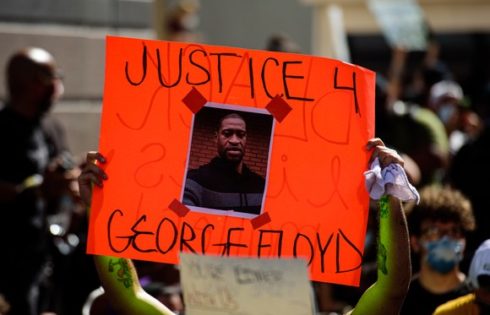
‘A safe space for Black CSLA students …’
California State University Los Angeles recently rolled out segregated housing for black students.
The arrangement comes roughly nine months after the university’s Black Student Union issued a set of demands in response to what its members contend are frequent “racist attacks” on campus, such as “racially insensitive remarks” and “microaggressions” by professors and students. One demand was for a “CSLA housing space delegated for Black students.”
“[It] would provide a cheaper alternative housing solution for Black students. This space would also serve as a safe space for Black CSLA students to congregate, connect, and learn from each other,” the demand letter stated.
The newly debuted Halisi Scholars Black Living-Learning Community “focuses on academic excellence and learning experiences that are inclusive and non-discriminatory,” Cal State LA spokesman Robert Lopez told The College Fix via email.
The public university has 192 furnished apartments in a residential complex on campus, and the Halisi community will be located there, Lopez said, adding it joins other themed living-learning communities already housed there.
Lopez declined to answer any additional questions or provide more details on the new community, such as how many rooms it encompasses, and whether it’s a whole floor or just a few rooms.
Cal State LA joins UConn, UC Davis and Berkeley in offering segregated housing dedicated to black students. While these housing options are technically open to all students, they’re billed and used as arrangements in which black students can live with one another.
MORE: ‘Orwellian,’ ‘ghettoization’: Criticisms mount against UConn’s dorm wing for black males
MORE: Universities, students of color embrace segregated spaces on campus
Meanwhile, at Cal State LA, campus leaders took down much of the online information on the new housing that it posted in late July. And university housing officials and other campus officials rebuffed requests by The College Fix for more details.
If campus leaders are proud of the new housing, they appear disinclined to talk about it.
CSULA’s Housing Services page offers one paragraph on the new black living-learning community, calling it an effort to “enhance the residential experience for students who are a part of or interested in issues of concern to the black community living on campus by offering the opportunity to connect with faculty and peers, and engage in programs that focus on academic success, cultural awareness, and civic engagement.”
In addition to the Black Student Union’s housing demand, the group also demanded a $30 million dollar scholarship endowment to aid black students, three new black faculty counselors, a new anti-discrimination policy and cultural competency course for faculty and students, and finally, a meeting with the president for them to discuss the “fulfillment and implementation of each demand.”
After the Halisi housing community was announced, the Black Student Union celebrated on its Instagram page, calling it a “long overdue, but well deserved” achievement, Young America’s Foundation reports.
Members of Cal State LA’s Black Student Union declined requests for comment from The College Fix.
Young America’s Foundation quoted from the Halisi housing application prior to university officials taking it offline. Rules students who seek to live in Halisi must agree to include “respect the differences of others that live in my community and look for positive thing to learn from them,” “be an advocate for change if the tools and resources available are deemed inadequate,” and “accept that I am still learning and need to be open to new ideas and experiences.”
Like The College Fix on Facebook / Follow us on Twitter
IMAGE: Shutterstock






Please join the conversation about our stories on Facebook, Twitter, Instagram, Reddit, MeWe, Rumble, Gab, Minds and Gettr.